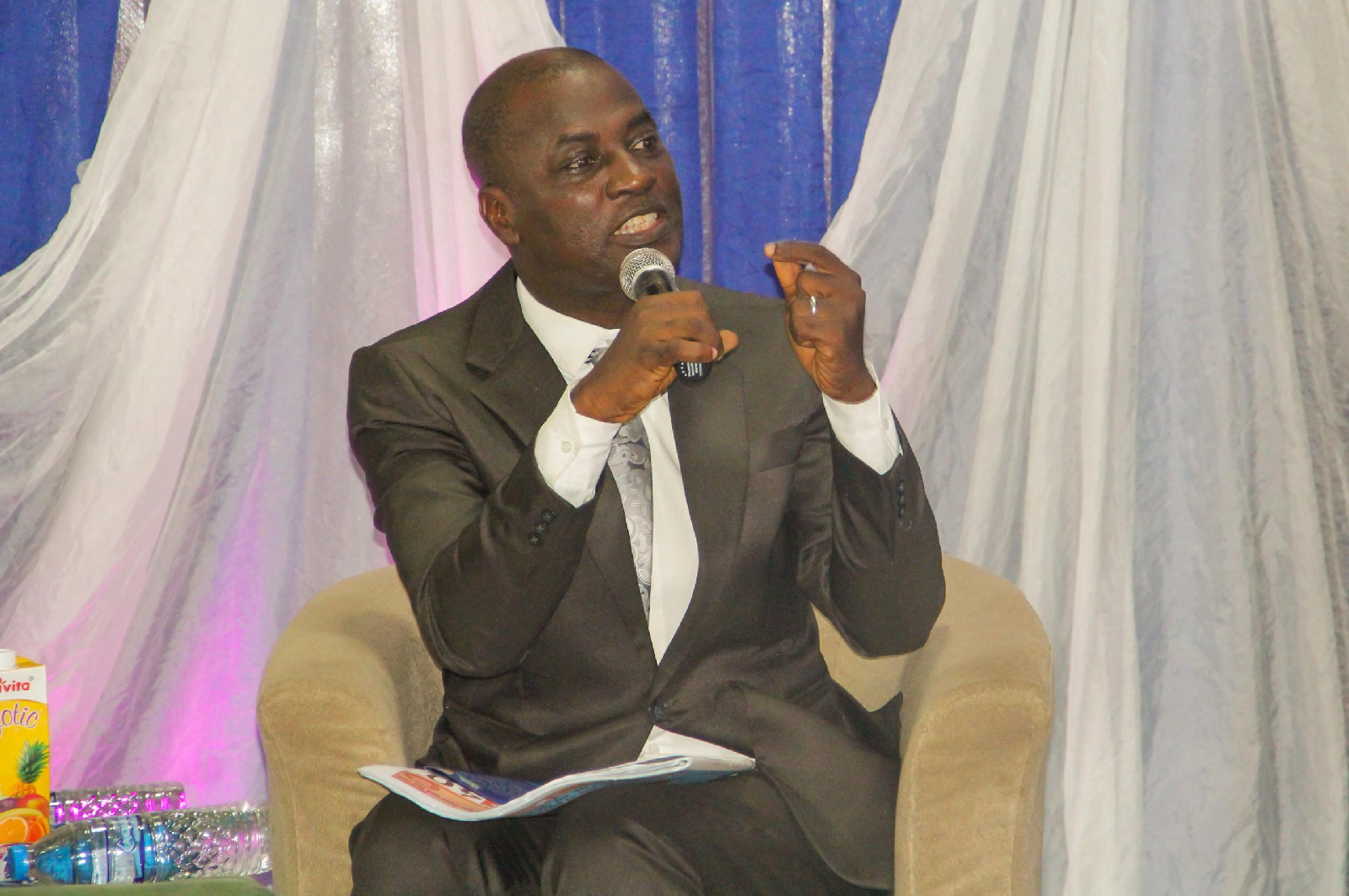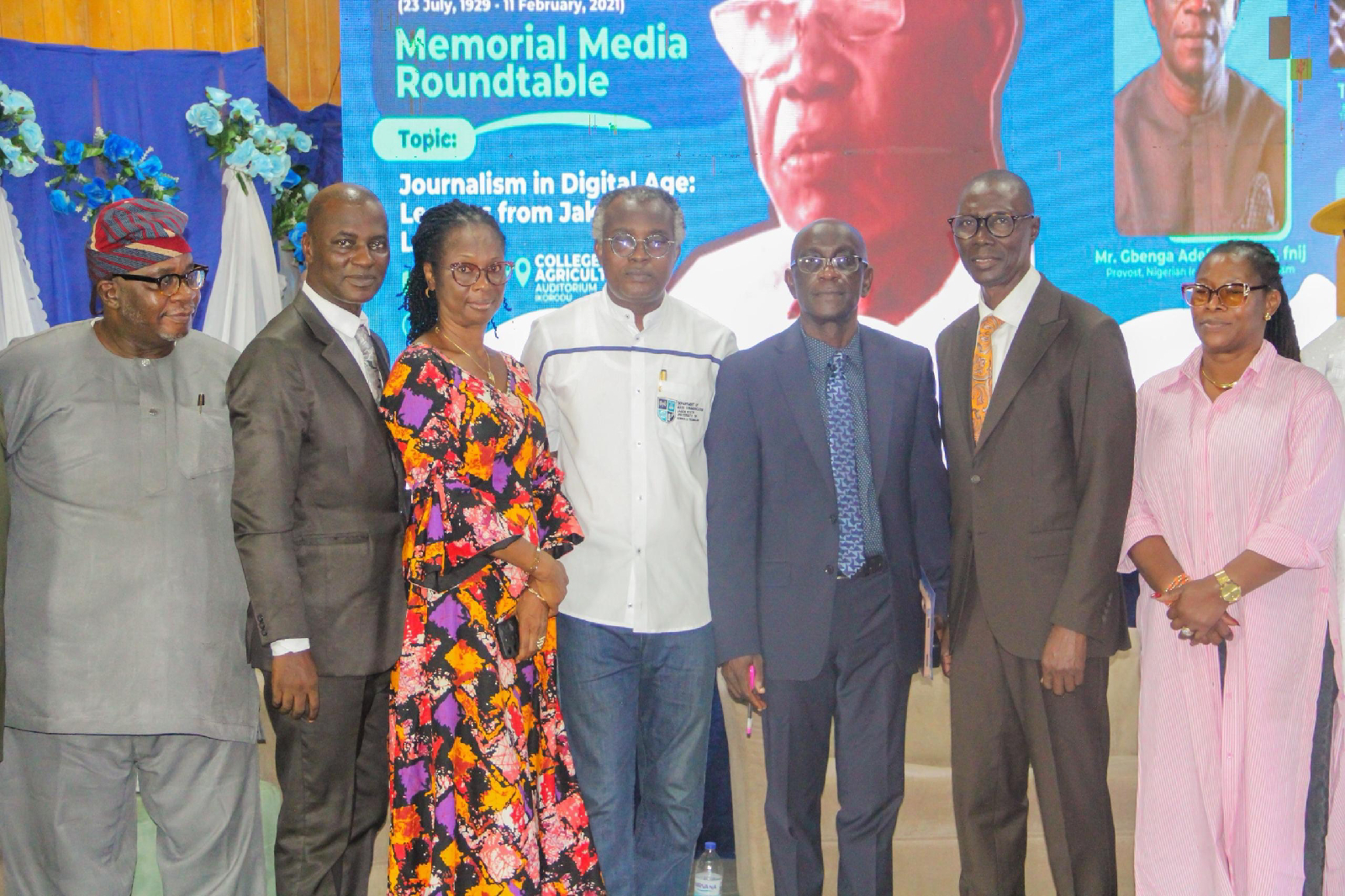Habeeb Ibrahim and Lawal Jahriat
Photos By: Ajide Muminat
Veteran journalist and media career coach, Mr Lekan Otufodunrin, has advised students of the Lagos State University of Science and Technology (LASUSTECH) to start preparing for their careers in journalism while still in school.
Otufodunrin, who is the Executive Director of Media Career Development Network and a former online editor at The Nation Newspaper, gave the advice during the Lateef Kayode Jakande Memorial Media Roundtable held on Wednesday, July 23, 2025, at the university’s Ikorodu campus.
The roundtable, themed "Journalism in the Digital Age: Lessons from Jakande’s Legacy," drew several industry professionals and students of the Department of Mass Communication.
“Start now. You don’t need to graduate first to be a journalist,” Otufodunrin said. “Learn, do internships, write stories, and learn from professionals. That’s what we call town and gown — when the classroom and the real world connect.”
He encouraged students to understand that journalism is not limited to only those who studied it formally.
While many students are fascinated by technology and AI tools, Otufodunrin warned that these tools must be used with care and knowledge. “Technology is good, but you need something in your head to use it well. AI can make mistakes. Only your brain can correct it.”
He emphasized that although tools may change, the mission of journalism remains the same — to serve the public truthfully and responsibly.
“Jakande didn’t have smartphones or apps, but he told the truth and impacted lives. That’s the kind of journalism we need, even in this digital age,” he added.
In an interview after his panel session, Otufodunrin shared that the classroom provides theory and ethics, but real-world skills are needed to succeed. “You must learn how to turn news into a product and earn a living from what you know,” he said.
On the perception that journalism no longer pays, he said: “It’s a misunderstanding. Whether you work in print, broadcast, or digital, there is opportunity. Today, even social media managers are journalists. You need many skills — writing, speaking, editing — so you can fit into any media space.”
He urged students to focus on value rather than popularity. “Jakande wasn’t famous for taking selfies. He was respected because he served. What will you be remembered for?”
Some students who attended the event shared their experiences.
Alejo Eniola, a 200-level student, said: “The event was more than I expected. It was entertaining and educational. I learned that integrity and fact are key in journalism. I now understand how AI should be used in reporting.”
Olaniyi Damilola said: “This programme gave me insight into what to expect in journalism and beyond. I feel lucky to be part of it.”
Adekunle Adeshina added: “This event reignited a fire of curiosity in me. I’m forever grateful.”
Irikefe Oghenetega described the event as an eye-opener. “It changed how I see mass communication. I now know it’s not just a course, it’s a reflection of our everyday life. From now on, creating awareness through media will be my priority.”
The Vice-Chancellor of LASUSTECH, Professor Olumuyiwa Odusanya, praised Jakande’s legacy and described the roundtable as a timely platform for nurturing future journalists.
He also thanked the keynote speaker, Mr Gbenga Adefaye, and panelists including Mr Taiwo Obe, Chief Monsur Olowosago, and Mrs Adesola Kosoko for sharing their wisdom with the students.



Comments
Post a Comment